A Tale of Two E's: Entrepreneurship and Ego

Entrepreneurs must have an ego. As at the bar during happy hour, everything in moderation, kids!
There are tons of reasons companies (big and small) fail, but it often comes down to one thing: hubris. Their leaders lack humility. Oddly, this lack of humility in the pursuit of largesse keeps them from realizing just what an enormous problem that is. It keeps them in denial of their own limitations.
There is no better example of this folly than a successful company deciding to build a new home for their operations - only to have their businesses collapse soon after that under the weight of excessive costs and overhead.
These case studies are not here because we like lists. They're offered to you because the good ones learn from their mistakes. The great ones learn from the mistakes of others. Be great.
At the height of print media and ignoring the heavy footsteps of the internet, The New York Times Company built a 52-floor monolith as the business' client base was...
5 Unexpected Costs of Operating a Business
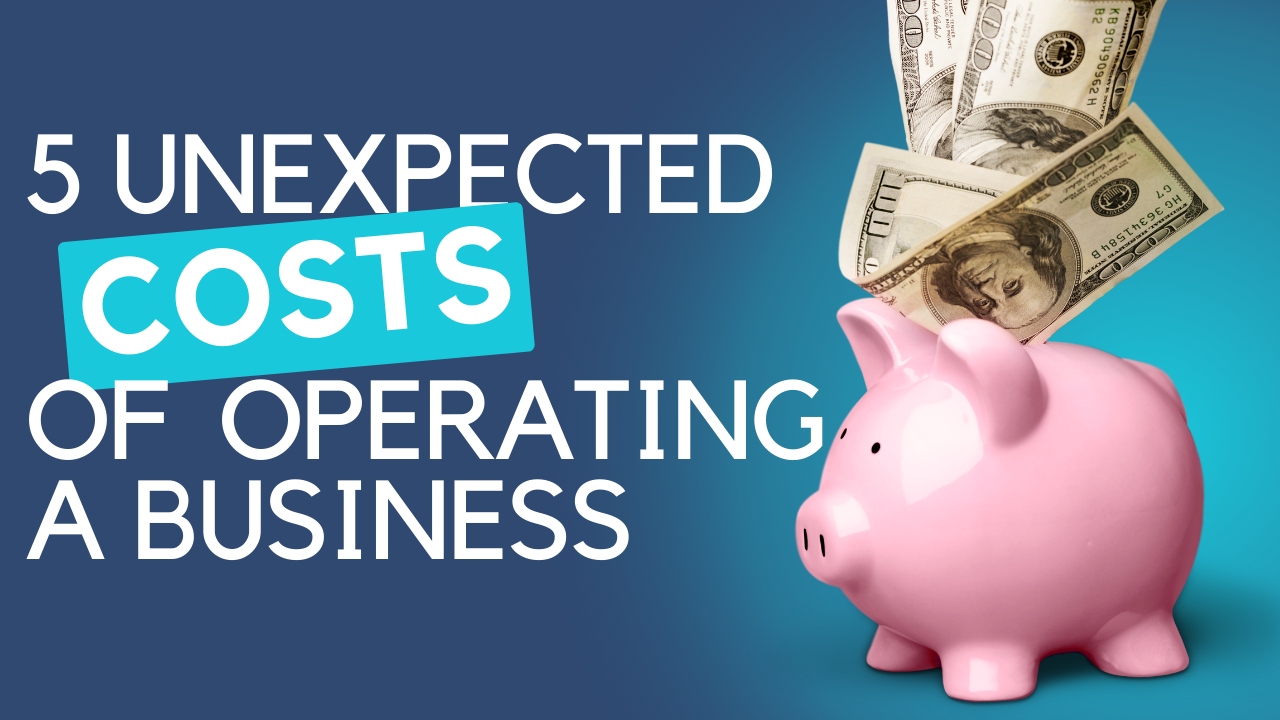
"By failing to prepare, you are preparing to fail."
Unexpected costs when running a business are going to pop up at the worst possible time (think giant zit right before the big high school dance kind of timing). It doesn't matter how carefully and thoroughly you planned your budget – Murphy's Law guarantees the one expense you didn't account for is the one you're going to incur.
With that in mind, today, we're going to cover five unexpected costs you might encounter as a business owner. It's our way of giving you the upper hand…and giving ole Murphy the middle digit.
Equipment Failure & Maintenance
Nothing lasts forever, and at some point, everything from construction equipment, machinery, ovens, printers, and computers will need servicing or replaced altogether. Depending on the nature of your business, some of these will immediately negatively impact your bottom line. (If you have a print shop and your printers go up, you're in trouble.)
...
Attracting More Customers, Finding Good Employees, and Improving Your Customer Relation Skills
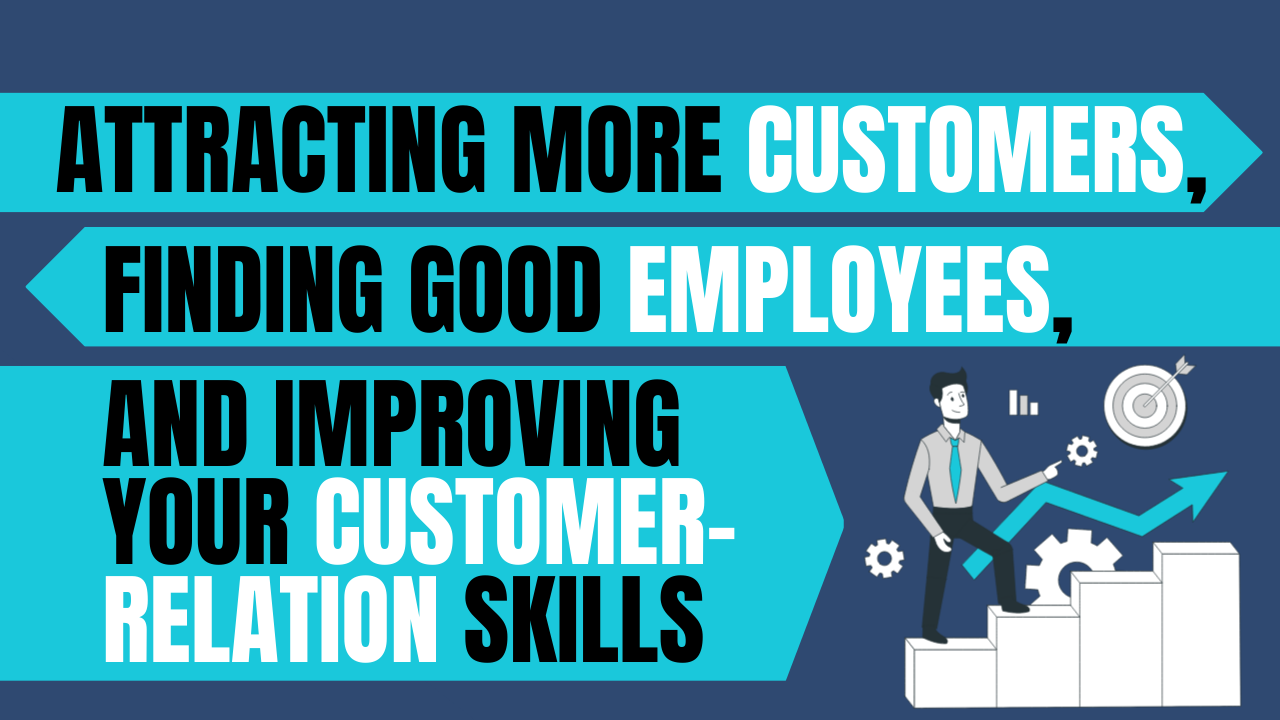
All businesses have many moving parts and pieces that contribute to or detract from their overall success. Profit margins, supply chain and inventory issues, customer relations, inflation, funding, cash flow, and competition are just the tip of the iceberg.
If you don't want to sail a sinking ship, you need to keep your ear to the ground (or deck, maybe?) on each and every one of these. But for today, we're going to focus on three areas that are all interconnected and can significantly impact your business -- for good or for bad.
Finding Customers.
Recruiting and Retaining Dedicated Employees.
Developing Good Customer Service.
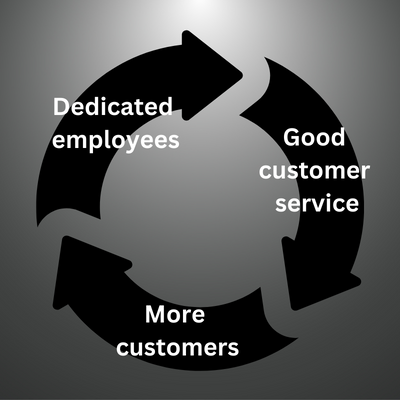
- For a business to grow, you need to attract more customers.
- More customers mean you need to hire more employees to keep up with the demand.
- More demand means more employee and customer interactions.
- More interactions mean more opportunities for employees to provide excellent (or not so excellent) customer service.
- Excellent customer...
Avoiding Entrepreneur Burnout
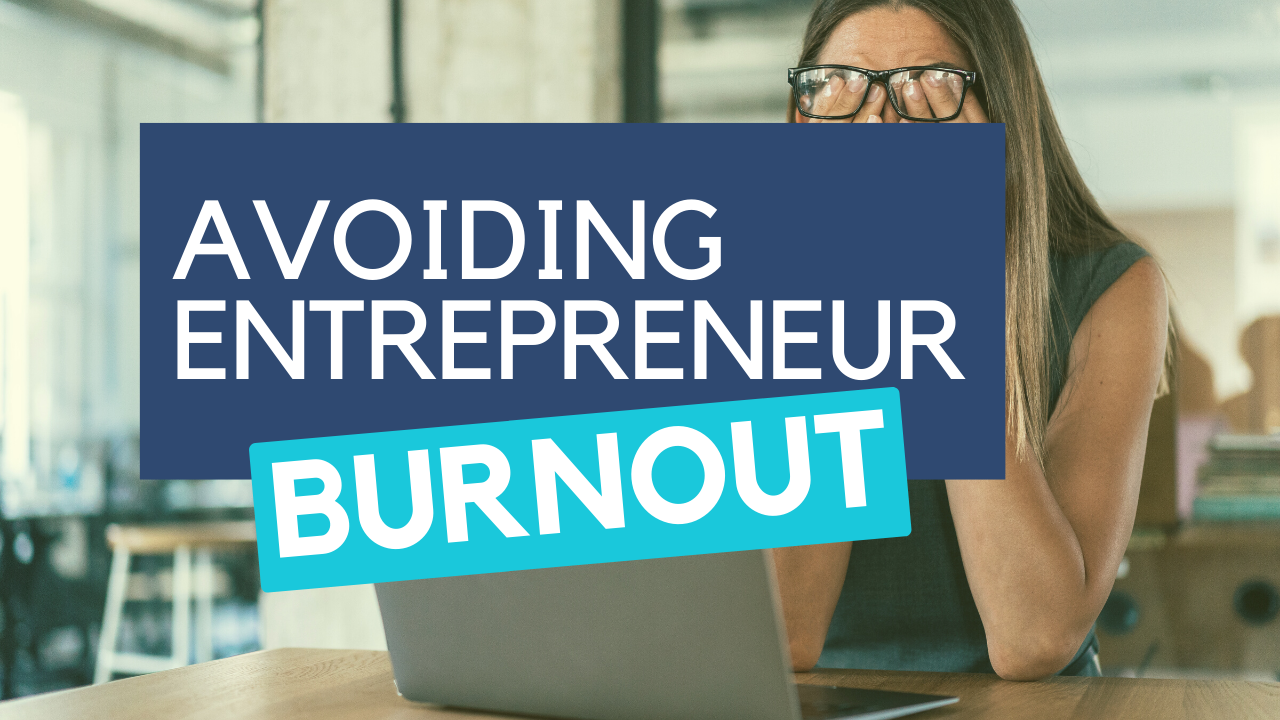
Burnout: exhaustion of physical or emotional strength or motivation usually as a result of prolonged stress or frustration (Merriam-Webster Dictionary)
If you're an entrepreneur or small business owner, you probably don't need the dictionary definition of the word; it's a reality you're all too familiar with. Starting a business -- and keeping it operational -- is no small feat. Elon Musk describes it as "eating glass and staring into the abyss. If you go into expecting that it's going to be just fun, you're going to be disappointed. It's not. It's quite painful."
Cheery, right?
So, why do people do it? What makes entrepreneurs take the long, hard path with no shortcuts and no guaranteed success? Why the hell would someone choose to take "the road less traveled" when there are plenty of other safer, less tumultuous options out there? I know Robert Frost claimed it made all the difference, but to what end?
Because you want something more. Because you don't want to settle....
How to be a Better Decision Maker

If your decision-making skills closely resemble a squirrel trying to cross the street, keep reading.
As a small business owner, you are confronted daily with (what feels like) thousand-and-one decisions -- many of which you don't even realize you're making. But even though you're getting a ton of practice, there is always room for improvement. Effective decision-making is one of the most powerful tools business owners have to drive action; cultivating this skill should not be overlooked.

The process of decision-making falls into two broad categories: Intuitive and Rational. Intuitive decisions rely on a "sixth sense" or "gut feeling." They tend to be more emotional-based and influenced by a person's mood. These types of decision-makers are looking for an outcome that feels right. Meanwhile, rational decisions are based on data and facts. It's a more black-and-white approach that has little regard for the emotional consequences and prioritizes an outcome that makes...
How to Bring More Value to Your Business
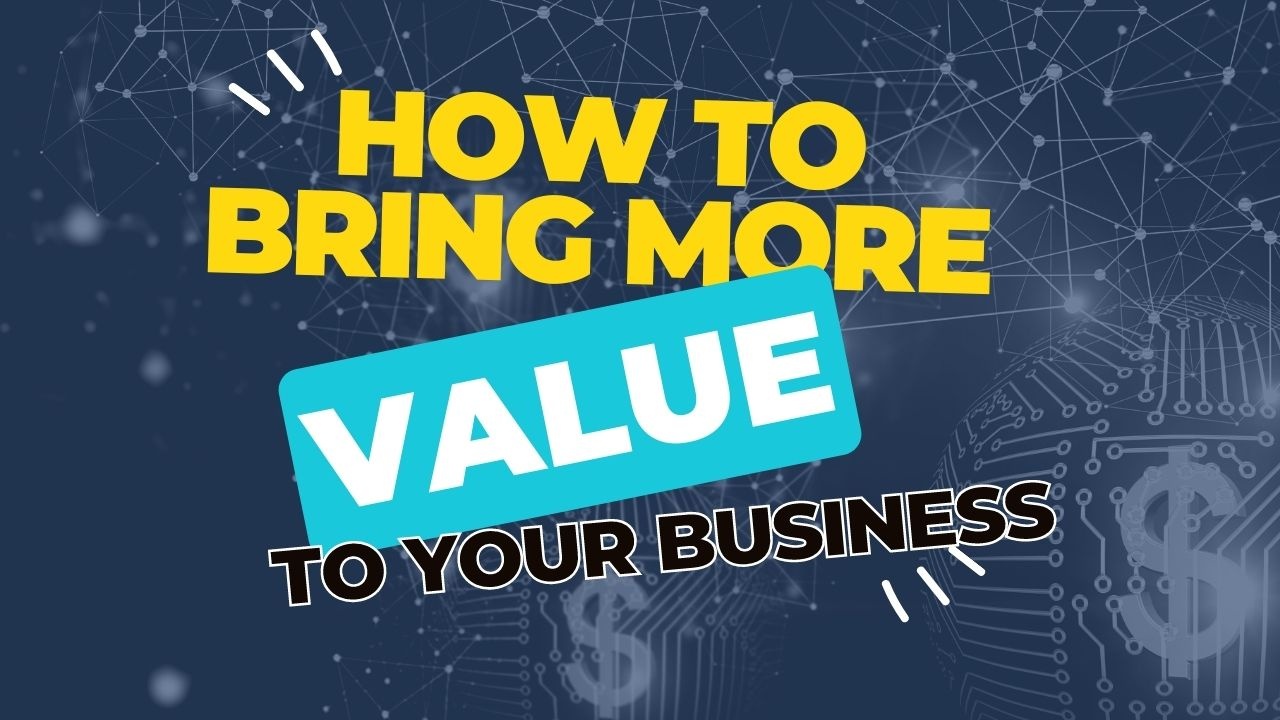
"When you stop growing you start dying."
This cheerful little quip (credited initially to William S. Burroughs) is a poignant reminder for small business owners that becoming stagnant isn't an option if you want to be successful. And that's the goal, right? If you want to create long-term success - not to mention survive the competition - you can't rest on your laurels or settle for the status quo. You need to be proactive.
One of the ways you can do this is by increasing the value of your business. This can lead to better profit margins, happier employees, more satisfied customers, and scalability - which means you can continue operating for years to come (or at least as long as you'd like).
You can add value to your business in various ways, some of which are entirely free while others require a bit more time or money. Below we've listed seven areas you can focus on today to get started.
Review the Current SOPs
Standard Operating Procedures (SOPs), when done well, are...
7 Common Mistakes to Avoid When Buying a Business

Owning a business is a dream for many. And by purchasing one that’s already up and running, you avoid the headaches, stress, and risk of starting one from scratch. It’s sort of like adopting a teenager instead of a newborn. You already have a pretty good idea of what you’re getting into.
But like teenagers, there’s an element of the unexpected and still plenty of mistakes you can make. To help you navigate this new territory, here are 7 Common Mistakes to Avoid When Buying a Business.
Mistake #1: Not understanding why the business is for sale.
Seller motivation is always one of the first things you should look into. There are plenty of legit reasons why someone would want to sell their business. They might be planning a cross-country move, want to explore a new industry, or are simply ready to retire. It could also be because it’s hemorrhaging money, they’re having trouble retaining employees, the production costs are too...
How Long Does it Take to Buy a Business?

Great Expectations: How Long Does it Take to Buy a Business?
Making the decision to buy a business is a big one, especially for first-time buyers. And it's also very exciting - the idea of being your own boss, taking those first steps to entrepreneurship, or generating more income are all appealing goals.
In that excitement, however, it's important to remember that the actual business acquisition process can be pretty lengthy. (This isn't one-click Amazon ordering.) There are a lot of steps to get you to the finish line, including research, market analysis, due diligence, securing funding, and negotiating contracts. Managing your expectations from the starting block will keep you from getting discouraged along the way if it ends up taking longer than you initially imagined it would.
So, give it to me straight. What sort of timeline am I looking at?
There's no one-size-fits-all answer to this question, but on average, you can expect it to take anywhere from 6 - 12...
Buying a Business in an Unfamiliar Industry
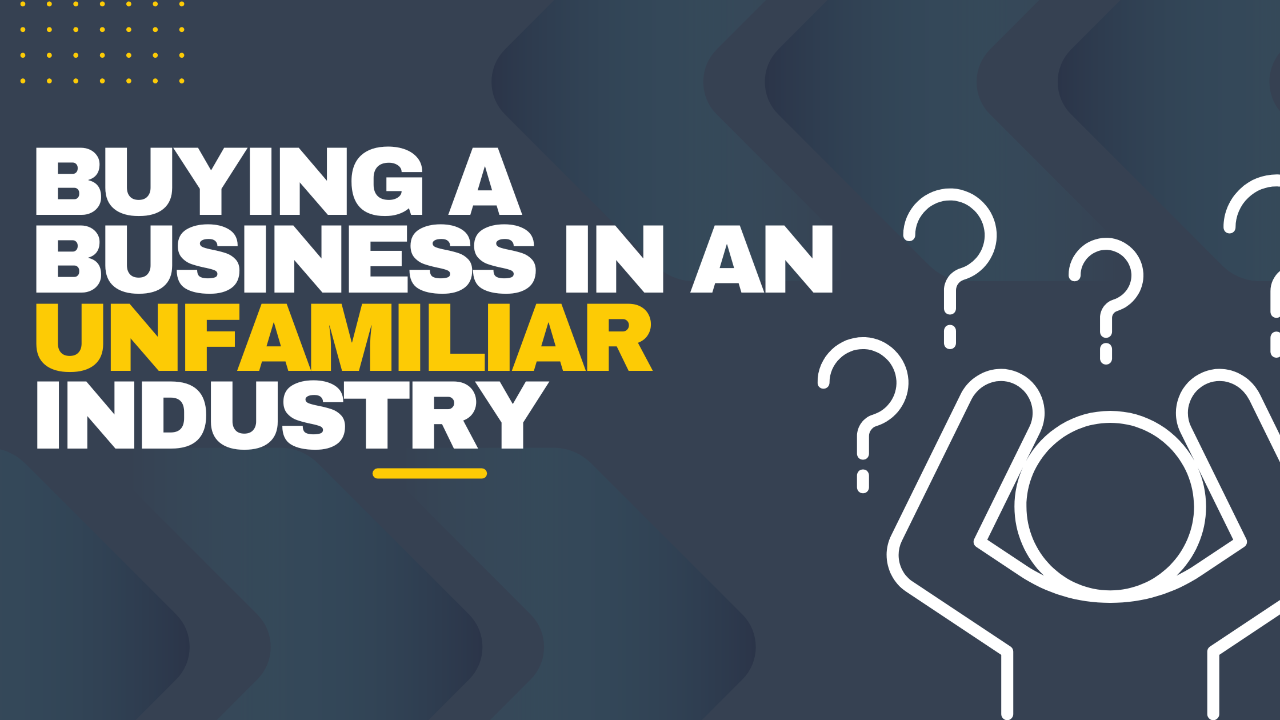
We’re all familiar with the old adage, “You don’t know until you try.” It’s the argument that parents around the world make every evening at dinner to convince their children they’ll like those oddly shaped green things on their plates. And it’s what we tell ourselves when we’re working up the courage to take a risk, like finally ordering The Dirty Shirley (worth it) or sinking a bunch of funds into Voyager (big whoops).
When it comes to buying a business, it’s usually recommended you look within the industries you’re familiar with. Logically and logistically, this makes perfect sense. You already know the ins and outs of operations, what the markets look like, the challenges, the trends, the competition, and so on. Overall, it tends to be a smoother transition.
But what if you find a really sweet deal on a business you know nothing about? What if you’re bored with running a laundromat when what you really want...
8 Red Flags of Buying a Business

Becoming a business owner through acquisition can be a smart move to avoid the hassles and headaches of launching your own startup. With so many new businesses failing within the first five years - not to mention the time it can take even to turn a profit - starting from scratch is risky business, sans a dancing Tom Cruise.
That’s not to say that acquiring an existing business is a cakewalk; it will come with its own set of unique challenges. But in many instances, the pros outweigh the cons, and buying a business could be your first step to building your empire. (We like to think big here.)
A big part of the purchasing process is doing due diligence. Not every opportunity on the market is a good one, and while it might be tempting to jump at the first eye-catching deal that comes along, keep in mind this isn’t a new mattress you can try out for 120 days and return for a full refund after four months of fitful sleep. These transactions are a lot of time and...



